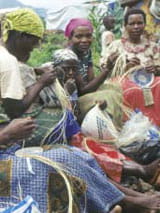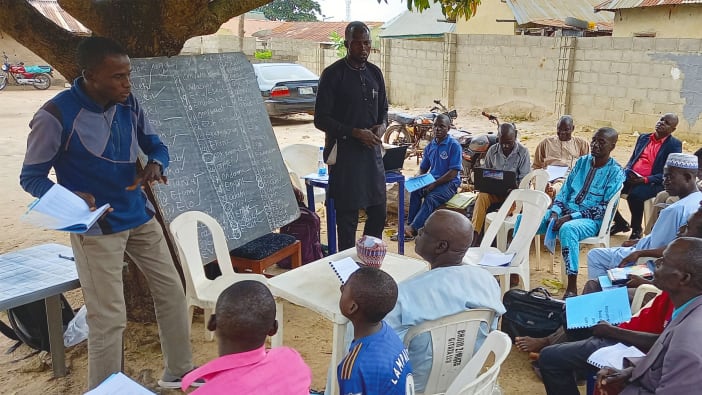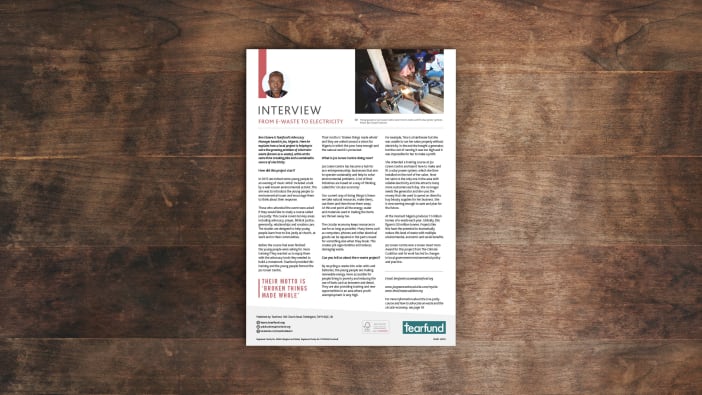Disappearing skills
Another disturbing trend to contend with is the issue of our local crafts, one of which is basket-weaving. The traditional basket weavers are growing older and the younger generation have little interest in this traditional craft, since it is not included in any curriculum in the formal school system. I am worried that the tradition of basket-weaving will die away. These baskets are woven to different shapes and sizes, and used for carrying things and for storing palm kernels, cereals and kola nuts in the house. They are usually very beautiful and carefully crafted and they last a long time when preserved. Traditionally, these baskets are woven with materials collected from palm fronds which grow abundantly in this area. I see this as a very environmentally-friendly material to replace the plastic bags which litter the environment.
As an artist with an interest in the environment, I have a plan which I hope will go a long way to solving the problem of spoiling the environment with plastic waste and also address the gradual loss of a traditional craft skill. I want to start a campaign for the practice of waste separation, compost-making and, most importantly, the use of locally woven baskets in the place of plastic carrier bags and containers. This campaign will use all the local communication media available in Nsukka. One such medium is the opportunity provided by the tradition of a mourning house. In this area, when a person dies, the female members of the immediate and extended family all gather at the house of the deceased. They are expected to stay together in mourning for one to two weeks. Many ideas can be shared and developed there. I will also use posters, banners and leaflets.
I will organise a workshop for the best basket weavers from around Nsukka to introduce them to the new designs I have made. At the end of the workshop I will select the ten best basket makers and work with them for a period of one and a half months. I will then exhibit the products of the workshop and look for local and non-local clients. I will also seek to liaise with the environmental protection agency to have these baskets placed at strategic places, like bus stops and shopping centres, for the collection of waterproof and other light non-decomposing wastes which I will also use as materials for craft work.
Changing minds
I believe that the mass production and use of well-woven baskets will bring an amazing change in the mind-set of the younger generation and provide sustainable livelihoods for them. These baskets are a suitable tool for collecting light waste like plastics for proper disposal.
There is a local saying about ‘pouring water in a basket’ which suggests an effort that will yield nothing good. This is a metaphor for the present culture of greed and lack of concern for the future of our environment. However, I know that with a concerted effort, there can be a reversal in people’s attitude towards their own traditions, values and culture and the way we are treating our environment.
Mrs Amuche Nnabueze (née Ngwu)
Bishop Shanahan Hospital, PO Box 19, Nsukka, Enugu State, Nigeria.
Email: [email protected]










